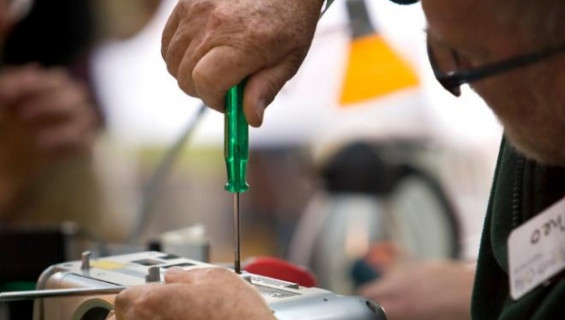Since repairing is better than disposing
If you want to receive the dutch report, please send me a message.

Since repairing is better than disposing
If you want to receive the dutch report, please send me a message.
Qualitative insights into the developments and opportunities in the repair and recycling sector.
The report shows that there are many initiatives in the field of repair, reuse and recycling. However these areas cannot be assessed on effectiveness yet, because the processes are in its early stages. Furthermore, the researchers note that the organization of the repair, reuse and recycling industry is fragmented. On top of this, the current arrangement of the chains for reuse and recycling do not coincide. Recycling companies do not see the value of reusing products yet, because this means they have less materials for production.
City of Amsterdam – with K+V
Researchers recommend:
To further investigate the sustainable area, to determine which audiences are attracted to circular initiatives and to study the consequences of these initiatives. Not only on the funding and environmental impact, but also on the role of the municipality.
The report offers an overview of the developments and opportunities in the repair and recycling sector.
Get notified about new updates, opportunities or events that match your interests.

Learn with the case study Amsterdam to anticipate future food disruptions. Understand the city's food supply chain vulnerabilities is critical for enhancing food resilience. Enhance food resilience in empowerment of people in urban food growing.
Dinsdag 14 oktober 2025
11.00 – 17.00 uur
In deze verdiepende sessie ontdek je concrete toepassingen van 3D-printen.
Tijdens deze focussessie verwelkomen we:
<strong>Viktor Valk</strong>, Regional president bij Freemelt.
Viktor zal het gaan hebben over Electron Beam Melting. Een 3D-printtechnologie waarbij een elektronenbundel metaalpoeder selectief smelt, waardoor volledig dichte en nauwkeurige metalen opgebouwd kunnen worden.
<strong>Maarten van Rooij</strong>, Vice-president bij Ultimaker
Maarten gaat in op de laatste ontwikkelingen rondom materialen voor 3D-printen. Hij belicht hoe nieuwe kunststoffen, composieten en duurzame filamenten de mogelijkheden van 3D-printen vergroten.
<strong>René Tamboer</strong>, programmamanager digitalisering & circulaire maakindustrie bij TU Delft
René vertelt hoe de TU Delft onderzoek naar o.a. 3D-printen vertaalt naar concrete toepassingen voor bedrijven en de samenleving. Hij gaat in op de manier waarop nieuwe technieken en ontwerpen worden ontwikkeld in samenwerking met de maakindustrie, met aandacht voor duurzaamheid, efficiëntie en innovatie.
Je kunt individueel deelnemen aan deze focussessie, maar neem vooral je collega’s mee! Door ondersteuning vanuit het Europese programma EDIH is deelname aan deze focussessie kosteloos, wel dient er een staatsteunverklaring ondertekend te worden.
3D-printen is allang niet meer alleen een techniek voor prototypes of kleine schaalmodellen. Inmiddels worden complete onderdelen, constructies en zelfs medische toepassingen geprint, met materialen die steeds sterker, duurzamer en veelzijdiger worden. De impact op de maakindustrie, bouw, zorg en vele andere sectoren groeit snel en daarmee ook de kansen voor bedrijven die deze technologie weten te benutten.
Ben je benieuwd hoe 3D printen jouw werk makkelijker, sneller of duurzamer kan maken? Wil je inspiratie opdoen en sparren met pioniers en experts over materialen, technieken en toepassingen? Meld je snel aan!
Wie is de gastspreker?
Tijdens het Innovation Dinner spreekt <strong>Herman van Bolhuis</strong>, oprichter van 3D Makers Zone en bestuurslid bij FME.
Vanuit zijn brede ervaring geeft hij een beeld bij de nieuwste ontwikkelingen in materialen, technieken en toepassingen.
Daarbij staat centraal hoe 3D-printen kan bijdragen aan innovatie en verduurzaming.
Wat zijn de kosten?
Dit Innovation Dinner is kosteloos.

